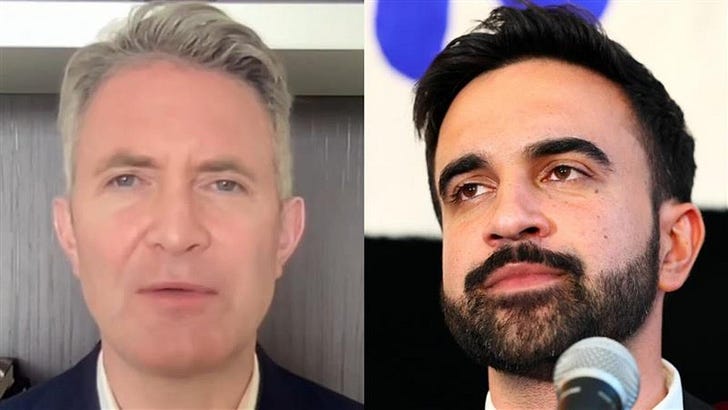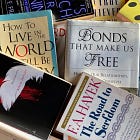If you plant kale in your garden, you won’t be harvesting cantaloupe. What is self-evident in the natural world is mostly forgotten in our personal lives and society.
We think we can magically obtain something other than what we have sown: Peace of mind when we are angry, success when we are lazy, a healthy economy when we run large budget deficits, and so on.
Then, when we harvest kale, we blame others when we have no cantaloupes. This confusion over cause and effect would be side-splittingly funny if the consequences weren't so tragic. When the confusion does become funny to us, we know we are at the bus stop for change.
In our upcoming program, Classical Wisdom for Living a Good Life, we will study David Hume among other great thinkers.
Hume explained why we are so confused about cause and effect. In the garden, we know from our experience and others that kale seeds only produce kale. In life, our thinking freely makes up connections between events, breaking the link between cause and effect. We don’t practice, yet we can think we are not getting playing time because the coach doesn’t like us. The government runs enormous budget deficits, and some voters believe the cause is that the “rich” don’t pay enough taxes.
Cause and effect are linked, but we don’t know that. Real change is only possible when we reestablish the links we have broken between cause and effect.
Because they don’t understand cause and effect, New Yorkers recently voted to make everything worse by nominating a “globalize the intifada” loving communist, Zohran Mamdani, to be their next mayor.
People troubled by high rents gravitated to his campaign, which promised something for nothing. Mamdani attracted support from Jew haters.
One commenter asked about Mamdani, “Why can't someone be charismatic/good looking/exciting AND sensible?”
The short answer is that voters don’t want “sensible.” You may recall from our study of Hayek’s The Road to Serfdom that the economically illiterate will prefer a politician with a “plan” and then blame others when the plan leads to ruin. (One of the advantages of your paid subscription is that you have complete access to the archives of Mindset Shifts U.)
One of Mamdani’s economically illiterate but “educated” supporters “grew up in a conservative family in upstate New York. ‘It was nice to feel like my vote mattered and is actually helping pave the way to a world I want to live in,’ he texted his mother when Mamdani won. “
The world he will get is not one he will want to live in.
If you are wondering how a city with such a large Jewish population could vote for an antisemite, consider that in NYC, residents took pride in ripping down posters of the hostages taken by Hamas. They are not Jew haters; they will swear, it’s just that having an anti-Zionist mayor is their most important issue.
Does one “great man” really shape the future of NYC? Or should we focus on voter ignorance and hatred, which are allowing politicians like Mamdani to be successful?
If a “Stalin” or “Hitler” had been born in the United States, would the American public in the 1930s have demanded their services as a politician? There were people with Stalinist or Fascist thinking in the United States; some may have dreamed of achieving political office.
For example, an American Stalin may have wanted to collectivize (and starve) Midwestern farmers. An American Hitler may have dreamed of making New York City free of Jews. These wannabes mostly lived out their lives muttering to themselves about their ideologies. The number of Americans who shared such crazed views was too small to matter. In short, our collective beliefs, not those of a single individual, are the seeds that sow the government we reap.
Why didn’t harsh economic conditions in the 1930s destroy the American republic and lead to totalitarianism? In his classic observations of America, Democracy in America, Alexis de Tocqueville was astonished by the knowledge Americans had about their government:
I have scarcely ever encountered a single man of the common people in America who did not perceive with surprising ease the obligations entailed in the laws of Congress and those which owe their beginnings to the laws of his own state, nor who could not separate the matters belonging to the general prerogatives of the Union from those regulated by his local legislature and who could not point to where the competence of the federal courts begins and the limitation of the state tribunals ends.
The depth of knowledge Tocqueville observed among common citizens was due precisely to America’s founding—unique among nations, our nation was founded on principles and not on nationality or geography.
The Founding Fathers were great believers in a knowledgeable citizenry being an essential bulwark protecting our essential principles and thus our liberty.
James Madison wrote in 1822, “Knowledge will forever govern ignorance; and a people who mean to be their own governors must arm themselves with the power which knowledge gives.”
A few years earlier in 1820, Thomas Jefferson wrote,
I know no safe depositary of the ultimate powers of the society but the people themselves; and if we think them not enlightened enough to exercise their control with a wholesome discretion, the remedy is not to take it from them, but to inform their discretion by education.
In other words, no law or constitution will protect rights if the population doesn’t believe in those rights. To the point, if enough people believe in fascism or communism, the death of the current leader of the movement will only produce a change of leadership, not the end of the movement. Did the death of Hugo Chavez relieve the suffering of the Venezuelan people?
In this first inaugural address Jefferson reminded the young republic of the importance of using principles as a North Star to protect “peace, liberty and safety.”
Principles form the bright constellation which has gone before us and guided our steps through an age of revolution and reformation. The wisdom of our sages and blood of our heroes have been devoted to their attainment. They should be the creed of our political faith, the text of civic instruction, the touchstone by which we try the services of those we trust; and should we wander from them in moments of error or of alarm, let us hasten to retrace our steps and to regain the road which alone leads to peace, liberty, and safety.
Those who support those dedicated to destroying America by violating the rights of others will soon discover that their destructive, unprincipled beliefs have consequences. Rights selectively granted will soon vanish.
Your rights are only as strong as the depth of the respect you have for the rights of others. Why? A government strong enough to violate the rights of some will soon violate your rights.
How can we restore to our minds the reality that you can’t have an effect without a cause? At Mindset Shifts U, we will continue to become more aware of the often invisible causes, so that we no longer suffer from their effects. If we reap what we sow, isn’t it time to pay more attention to what we are planting and less attention to the noise all around us?
Your support of Mindset Shifts U is deeply appreciated.





Wonderful article. I wonder how many of the young generation know who Madison and Jefferson were let alone knowing their philosophy. We don’t teach history anymore. This will not end well.
You cannot forget however to reflect on the condition of the soil.